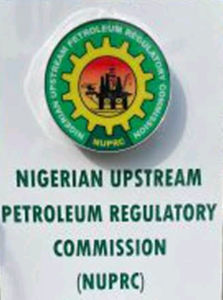
By Publisher
Kindly share:
The Nigerian Upstream Petroleum Regulatory Commission, NUPRC, has said Shell International’s bid to sell its onshore assets to Renaissance in a transaction worth $1.3 billion does not have its approval.
Denying the report to the contrary in a statement on Wednesday, Olaide Shonola, the Spokesperson of NUPRC, made the clarification, following a report that it has granted regulatory approval to the acquisition deal, adding that the content of the publication did not emanate from its office.

The statement read in part: “The attention of the Nigerian Upstream Petroleum Regulatory Commission (NUPRC) has been drawn to a publication in the media of September 11, 2024, purporting that the Commission has accepted Shell International Plc’s bid to sell its onshore assets to Renaissance in a transaction worth $1.3 billion.
“As part of the Commission’s commitment to transparency and accountability, it will communicate its position on the transaction to the public at the appropriate time.
“Industry stakeholders and the general public are advised to disregard the publication as it is baseless.”
Recall that in January this year, Shell announced the sale of its onshore subsidiaries to Renaissance.
Shell had announced the impending sale of its onshore oilfields and gas to Renaissance, a consortium of five Nigerian companies, including ND Western, Aradel Energy, First E&P, Waltersmith, and Petrolin.
This deal, dependent on the approval of the Federal Government among other conditions.
The deal is to enable Shell to exit from the challenging operating environment in the Niger Delta region, though it will continue its operations in offshore and deep offshore areas.
According to the report, Shell expressed satisfaction with this landmark transaction, noting that upon completion, the company could take in extra payments of up to $1.1 billion beyond the sales price.
This sale is part of Shell’s strategic shift from its onshore commitments in Nigeria due to operational challenges, including oil theft and pipeline vandalism.
This divestment by Shell would revoltunise Nigeria’s oil sector, pointing to a shift towards local ownership and management of oil assets.
If the Nigerian firms successfully acquire the Shell assets, they would face both challenges and opportunities with regard to technical and financial capabilities, as well as the potential to energise the local oil industry.
However, for over seven months, since the report, the acquisition deal is yet to receive regulatory approval.





